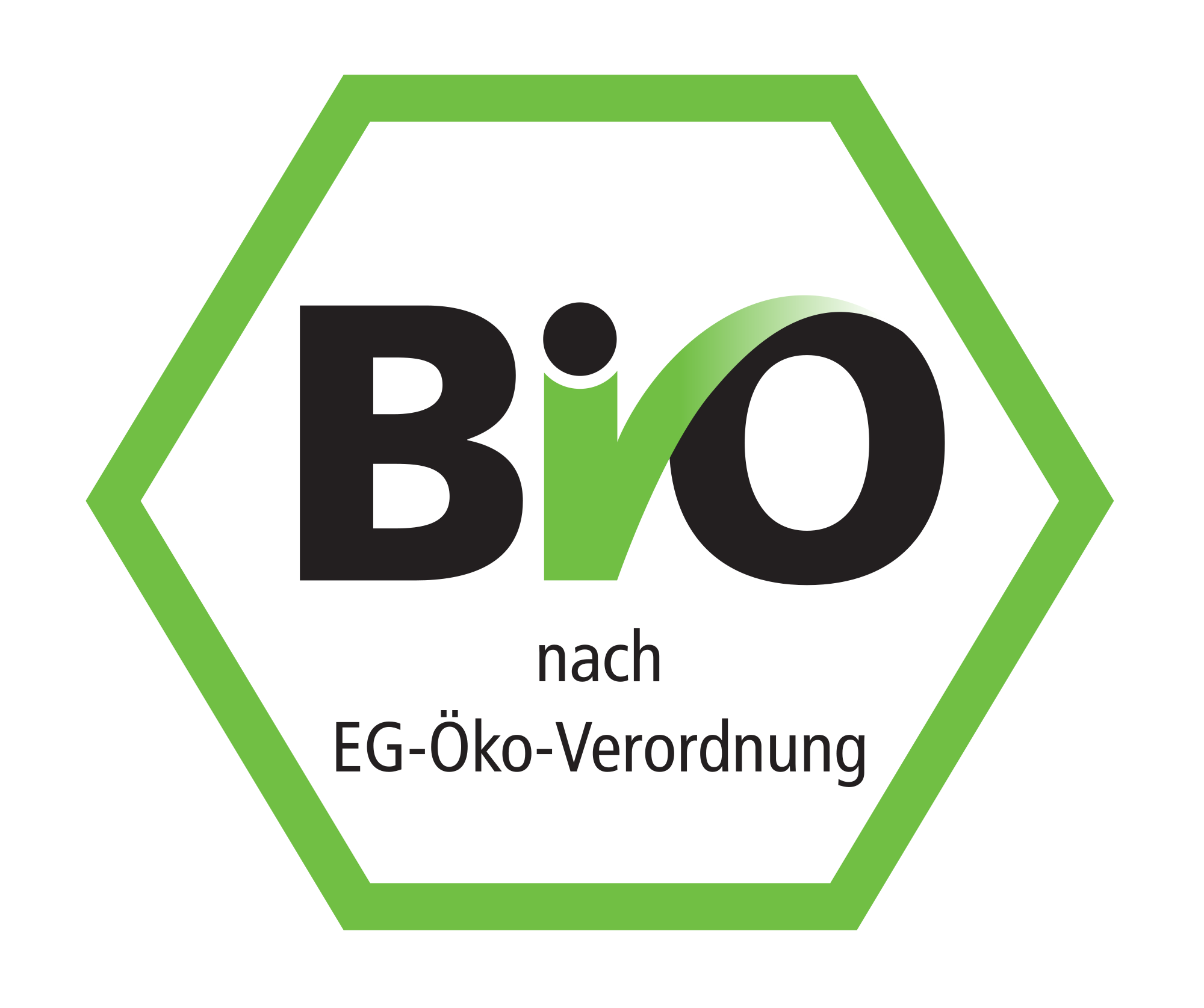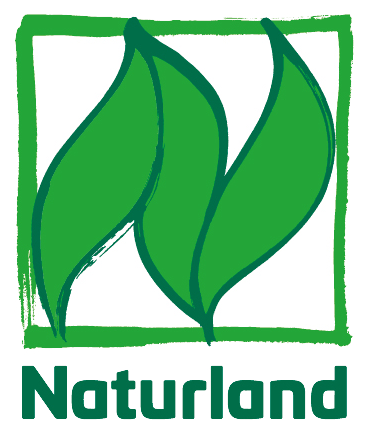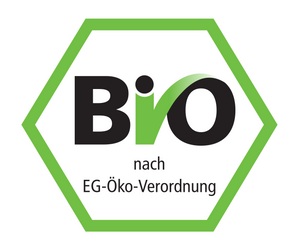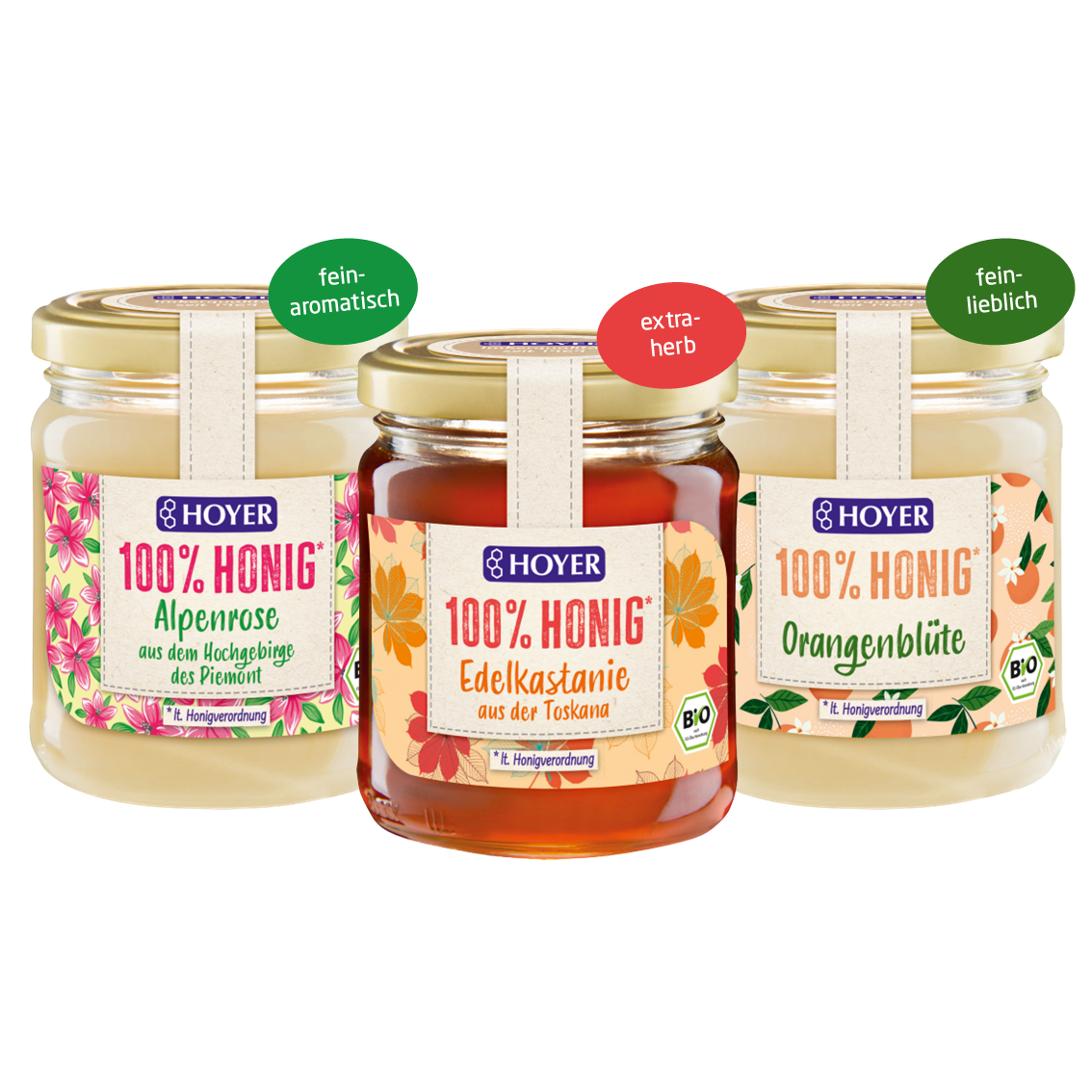
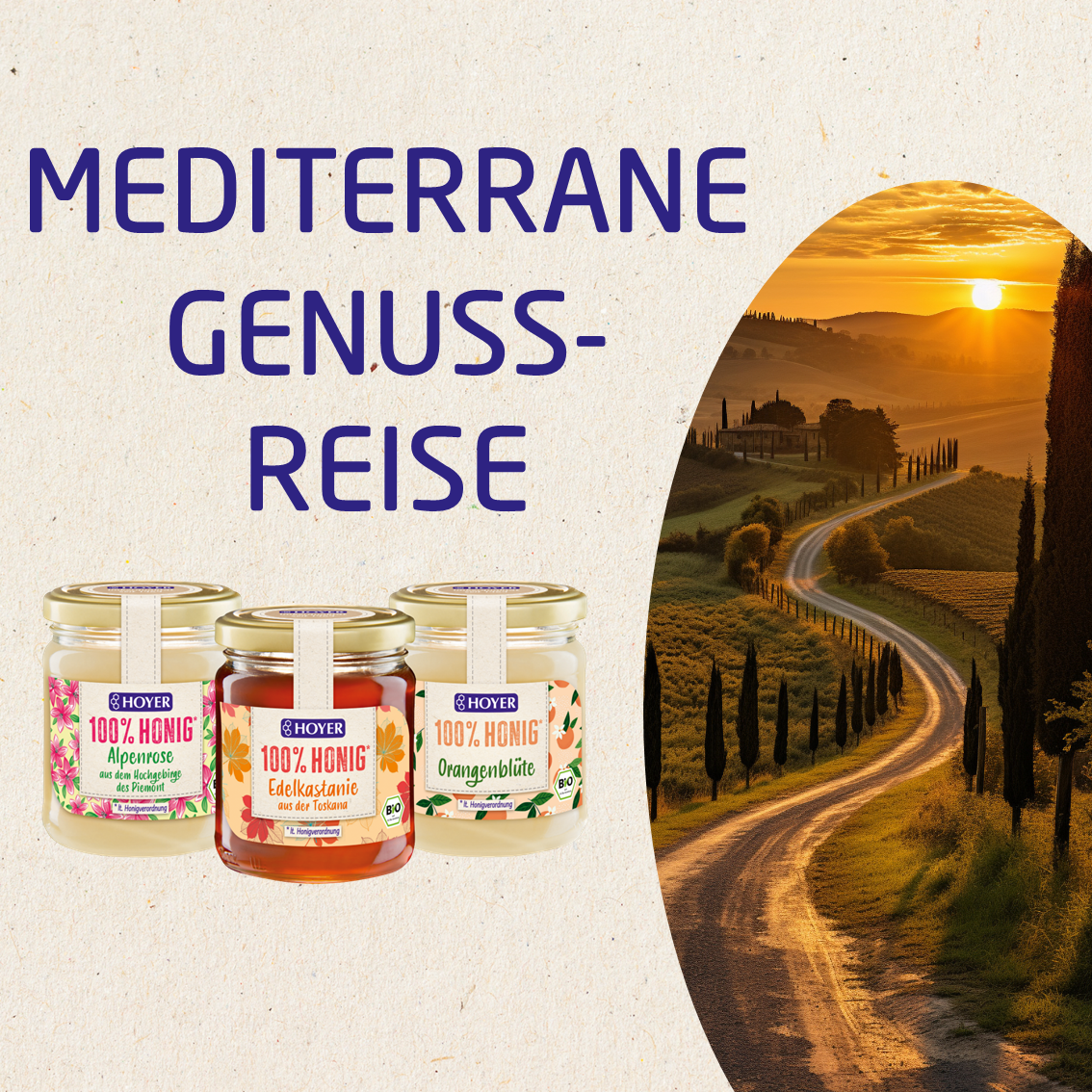


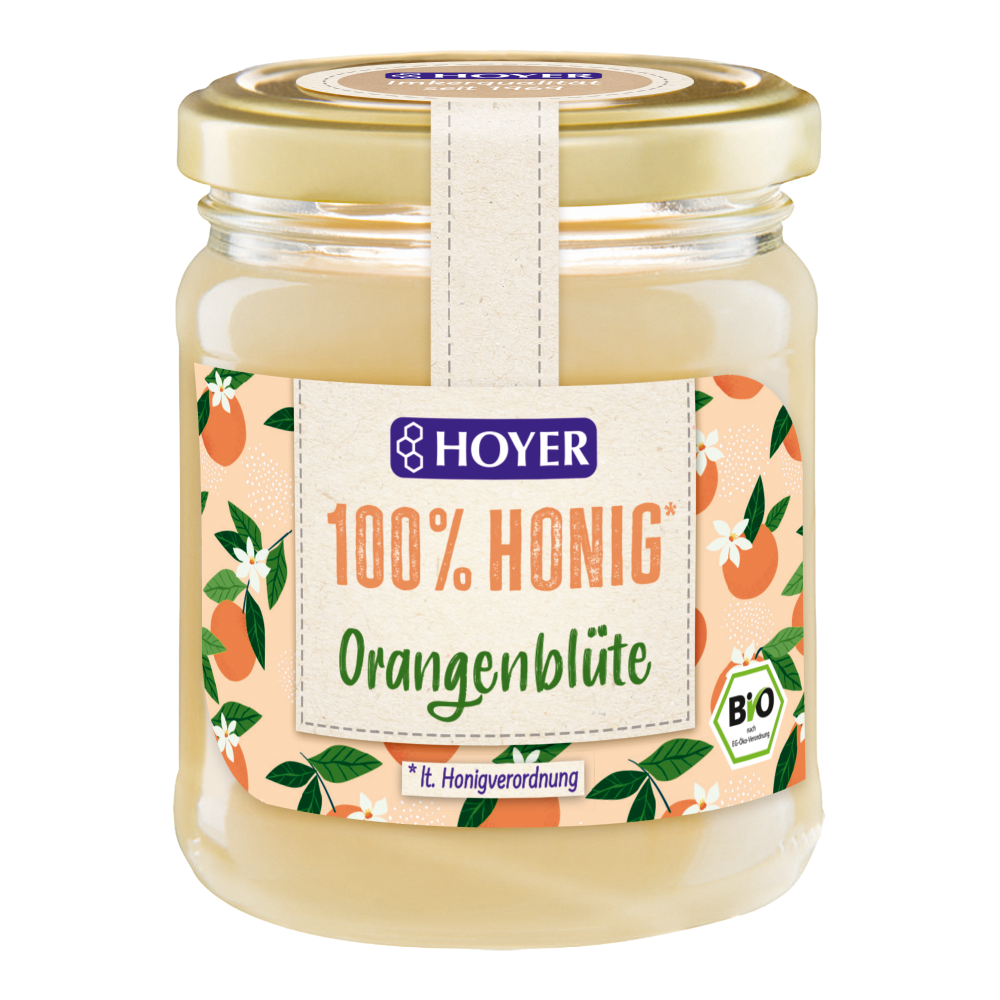
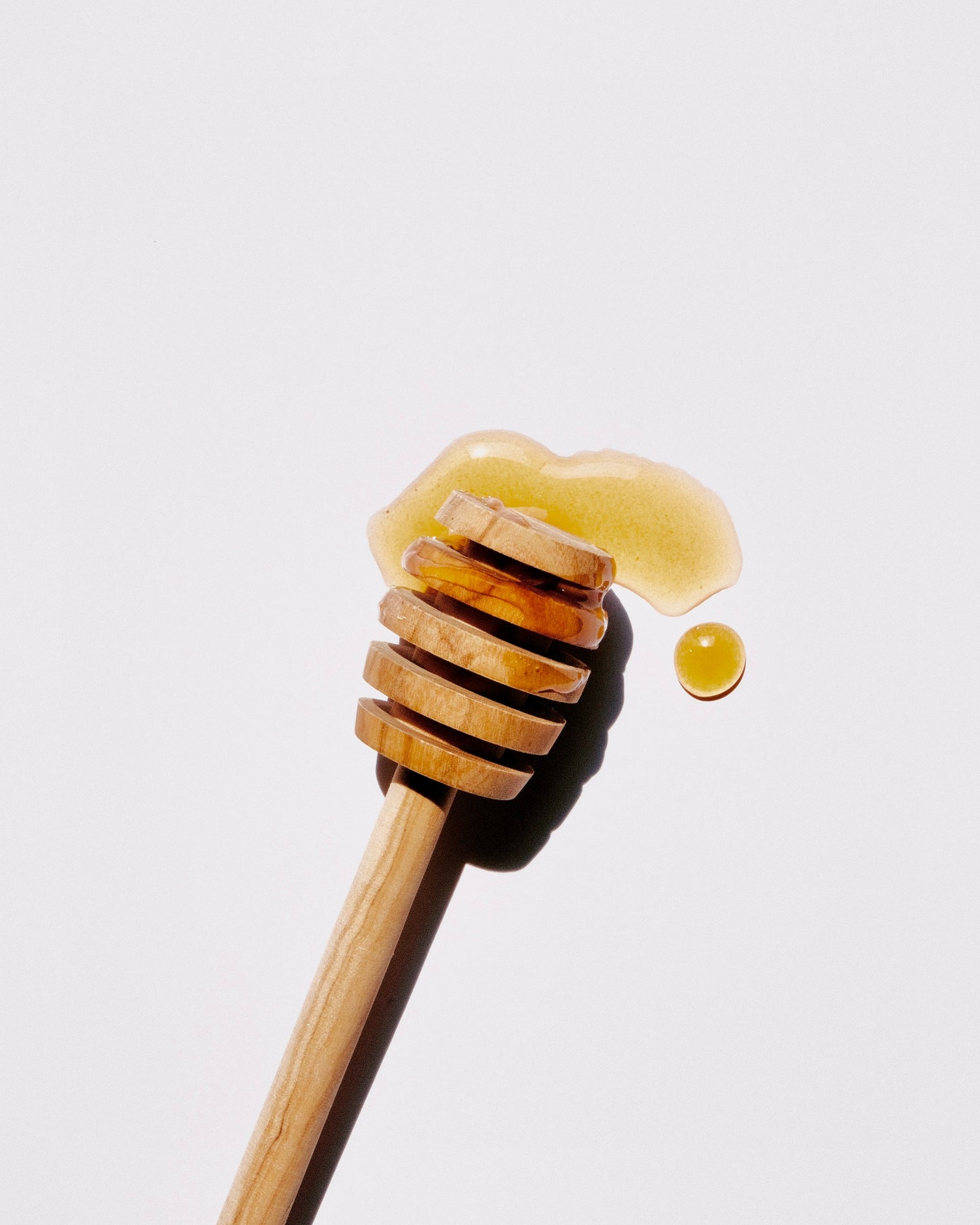
Unterschied BIO vs. konventionell
Warum BIO Honig?
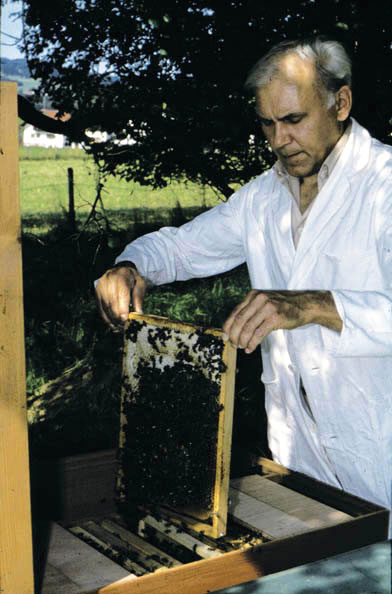
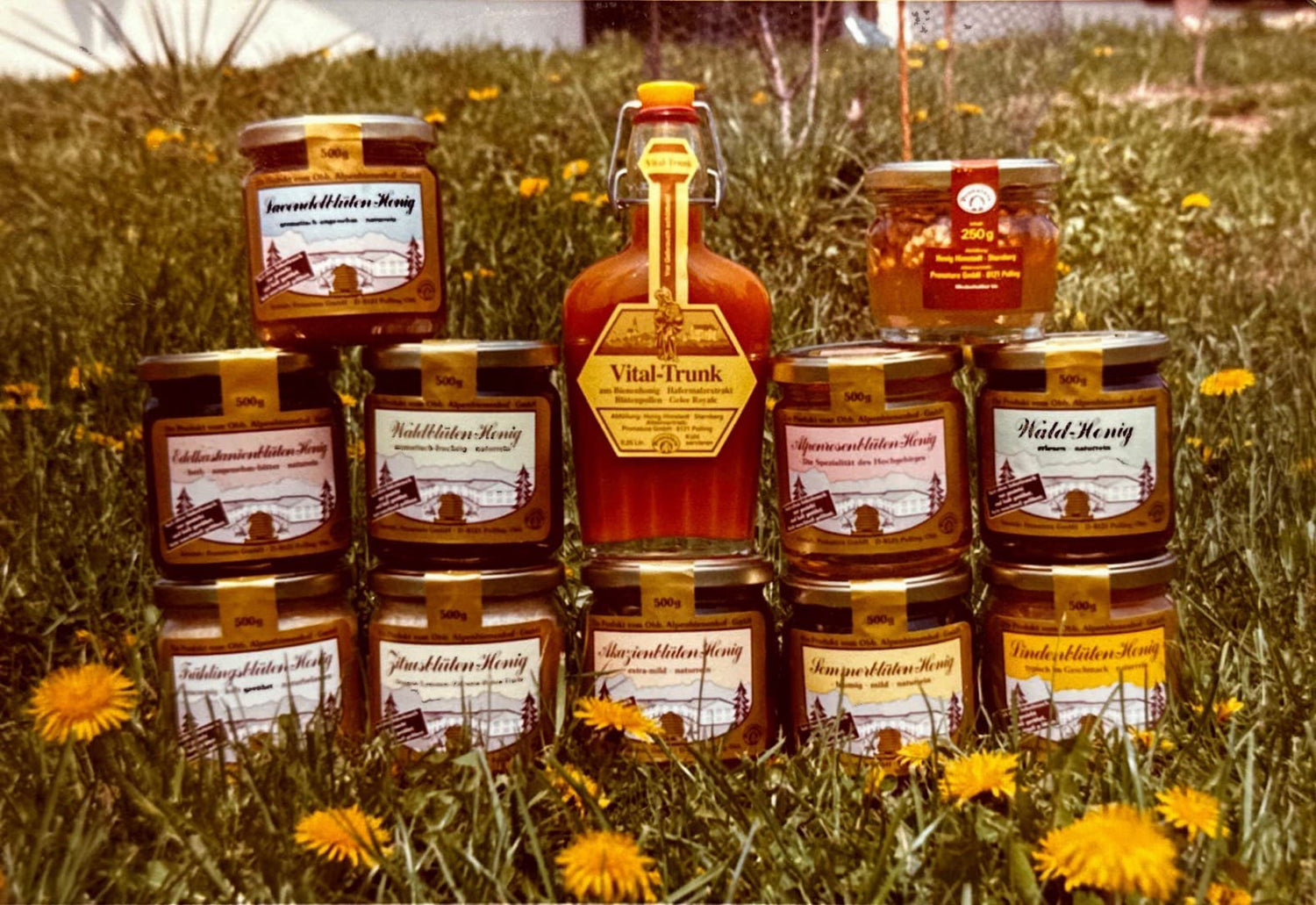
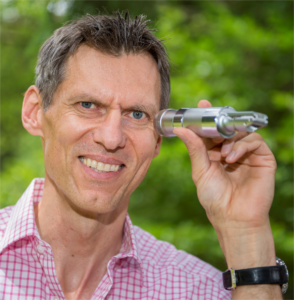
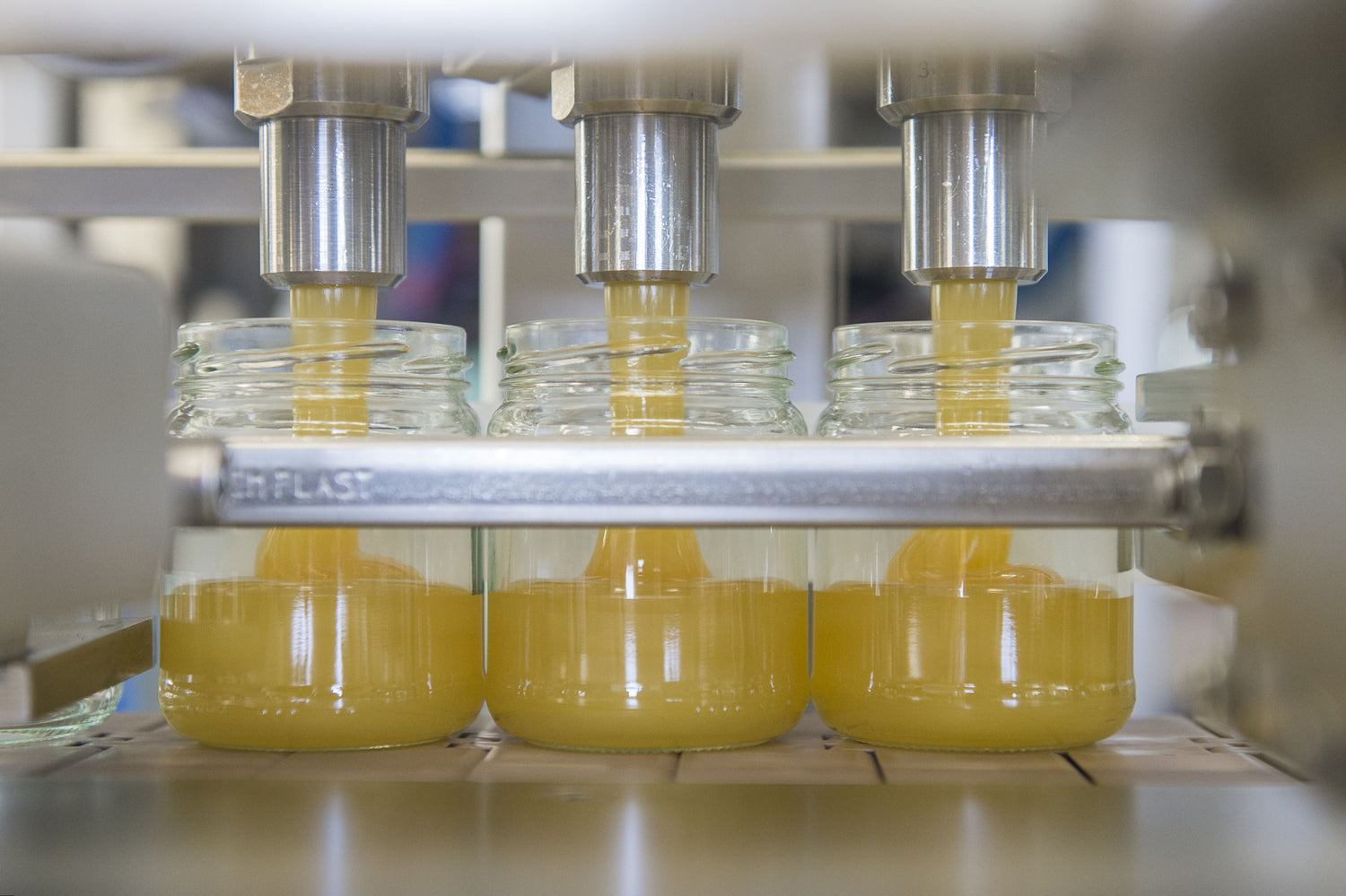
Family business in its third generation
With the power of nature!
Founded in 1969 as a beekeeping business in Polling, Upper Bavaria, we can now look back on decades of experience from the production to the processing of high-quality beekeeping products.
HOYER stands for trust, enjoyment and reliability, and we strive to uphold and continuously develop these values.
Immerse yourself in the world of bees and enjoy the best quality organic honey.
FAQ - Frequently asked questions about our honey
Why is it that some honeys are liquid and some are creamy?
Honey is clear and viscous when the beekeeper extracts it from the combs. And all honey forms crystals at some point, which cause it to solidify. Depending on the composition of the honey, this transition (crystallization) from liquid to solid takes place within a few days to a few months. The ratio of the two types of sugar, glucose and fructose, plays a decisive role in this process. The more glucose a honey contains, the faster crystals form. The more fructose, i.e. fruit sugar, it contains, the longer the honey remains liquid. A ratio of approx. 1:1, as is the case with rapeseed honey, for example, means very rapid crystallization within a few days. However, if the ratio of fructose is predominantly 1.5:1 (e.g. acacia honey), the honey remains liquid for months or even years.
What is the best way to store honey?
Thanks to its high sugar content and natural antibiotic substances, honey can be kept almost indefinitely. Nevertheless, a few basic rules should be observed with regard to enzymes and taste, among other things:
- It is best stored in a dark place
- Avoid direct sunlight at all costs
- Store at temperatures between 10° and 20°.
- Always store in a dry and tightly closed container
Depending on the dextrose content, liquid honey can begin to crystallize after a long period of time. To liquefy the solidified honey again, it is sufficient to heat it slowly in a water bath at a maximum temperature of 40°.
Why does HOYER offer honey from other countries?
With an average of 1.0 kg per capita per year, Germans are among the world leaders in honey consumption. Due to the climatic conditions, domestic production is not sufficient to meet the high demand for this sweet treat. In Germany, only around 15,000 - 20,000 tons of honey are harvested each year, while around 80 percent of the honey consumed is imported from regions of the world where climatic and botanical conditions are ideal for several harvests per year. Many honeys come to Germany from the warmer countries of Europe and from Central and South America.
Thanks to the different climatic conditions and the associated flora, honey can be "harvested" anywhere in the world all year round. This means that there is not only a year-round supply of honey, but above all an unparalleled variety. Honey can be compared to wine: its origin - botanical and geographical - is decisive for the taste, color and consistency of this natural product.
